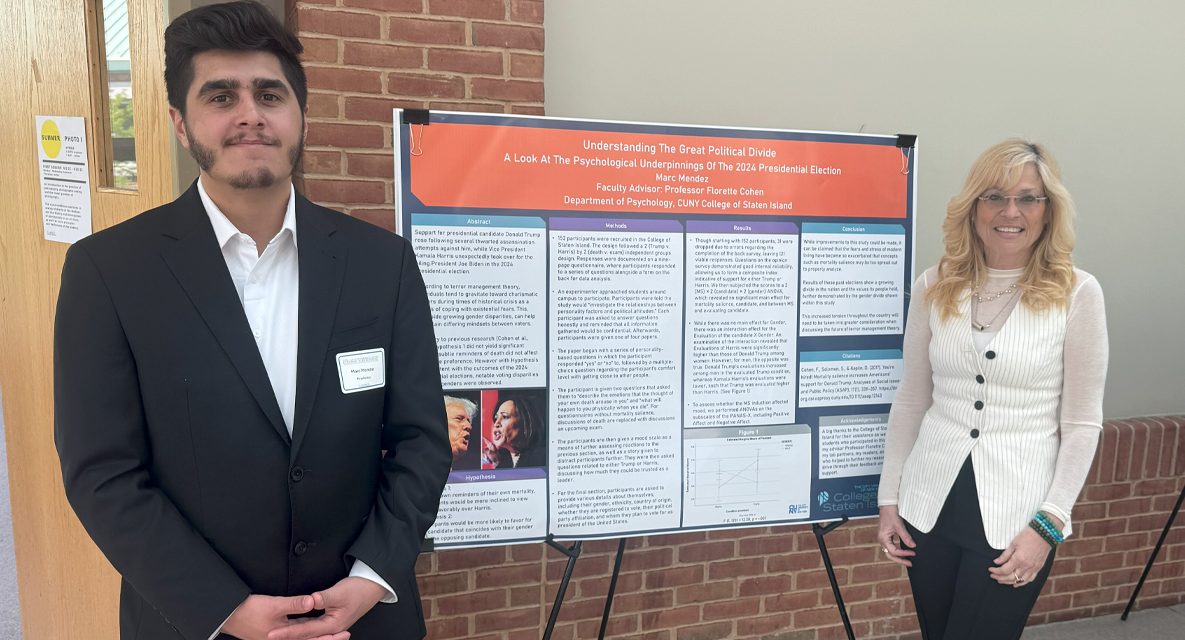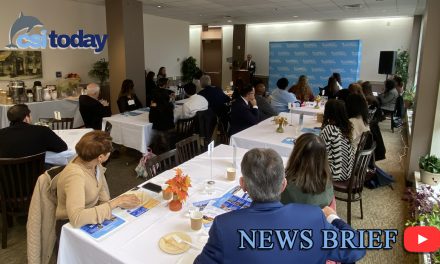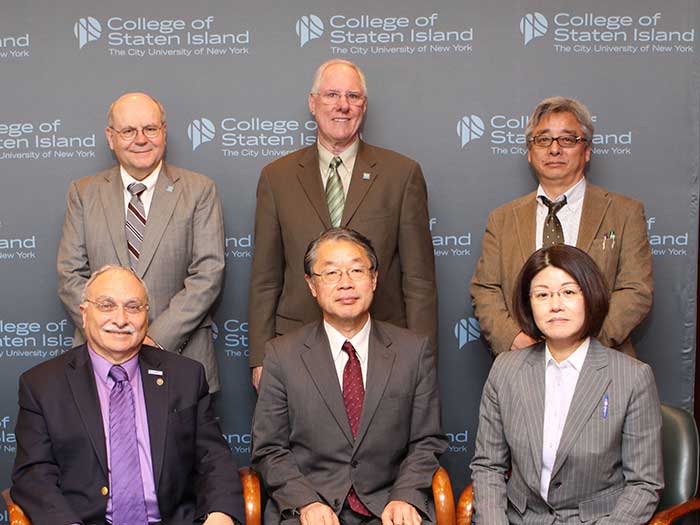In the Center for the Arts, students showcased their independent study research and data, for numerous majors at the 2025 Undergraduate Conference on Research, Scholarship, and the Arts.
The large atrium on the bottom floor of 1P and the hallways above on the second floor seemed a lot smaller on Thursday, May 1, with student presentations taking up most of the free space that is usually there. Each way you looked, there was something new and interesting to learn. Every presentation was carefully put together and provided some understanding to those observing, of the topics that need to be studied in these fields.
The time and work put into these presentations represents the passion and drive displayed through the many undergraduate studies, which also emphasizes effective learning and teaching interactions between students and mentors. When working on an independent study or research project, students are given a different educational experience that can’t be experienced in a classroom. By strengthening research skills, time management, and critical thinking, these studies provide a creative educational experience, and mentors are able to see the growth and progress of students throughout their studies.
Evan Brown, a Computer Science major in his senior year, presented his studies on analyzing malware using a virtual lab he created on a special software that allows him to run and examine real malware on his desktop without putting his desktop at risk. Brown worked with Computer Science Professor Mohamed Ali, and Brown explained why this event is so important not only as a student but for faculty as well.
“… This event allows students and faculty to share their research with different people and mentors can see the great work that their graduate students are studying or will study in the future.”
Marc Mendez, a senior Psychology major and Department of Psychology Associate Professor Florette Cohen emphasized the psychological factors in a survey analyzing Terror Management Theory (TMT). Before asking questions about which presidential candidate in the 2024 Election would make a better leader, they used the mortality salience manipulation method used when investigating TMT and how people react to their own mortality. TMT argues that the human desire for meaning and self-esteem is driven by the awareness of mortality, and maintaining or creating worldviews can be used to cope with the fear of death.
Cohen and Mendez explained how improvements can be made and how future generations will continue their studies and develop the research.
“This is something that needs further experimentation, which we are doing now with some follow up studies,” said Cohen. “I think in terms of the research we’ve done regarding Terror Management Theory, it influences undergrads in the future, showing them how they can take an idea and build upon it for a year or longer until it’s a fully fledged concept.” said Mendez.
Debora Adebowale, a senior-year student majoring in Biology, shared a presentation she made with other student-scholars and mentor Dr. Nancy Liu-Sullivan. Her presentation involves a study regarding the treatment of lung cancer and the specific role of collagen genes on a Kaplan Meier plot. Studies and research that analyze cancer provide crucial information for a common disease that needs further study, one that Adebowale and her peers are hoping to learn more about.
“We’re open to learning new things and this is a good resource to learn more, especially if someone you know personally could be affected, so I really hope students come here and gain a little bit from it,” Adebowale said.
The work shared and presented in the Center of the Arts was an experience for all the undergraduates who presented their work to appreciate the achievements they’ve made in their research. Along with their mentors’ and their departments’ help, undergraduates get to inform others on new findings in their fields that can possibly evolve after college and be the focus of a professional career.
By Kyle Cicero





![SI Small Business Development Center Honors Black Entrepeneurs [paywall]](https://csitoday.com/wp-content/uploads/2024/03/SBDC-Advance-Web-Cover-copy-440x264.jpg)











